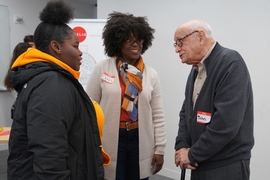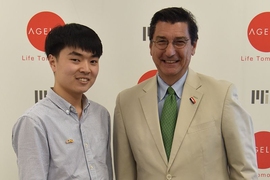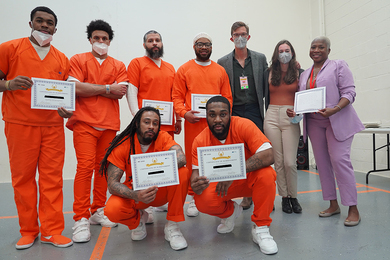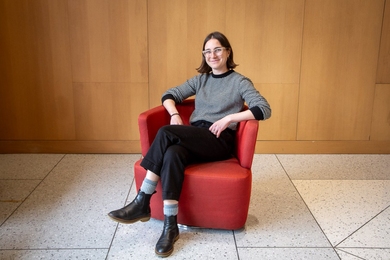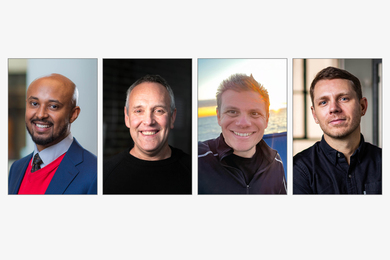The MIT AgeLab presented the fifth annual OMEGA scholarship awards to five accomplished young adults from California, Massachusetts, and New York. The OMEGA scholarships recognize young people who are leading efforts in their schools and communities to foster intergenerational connections. This year, through the generous sponsorship of Five Star Senior Living, the scholarship expanded beyond the New England area to across the United States, as well as increasing the number of students honored to five and the value of the award given to each honoree to $5,000.
Andrew Barry and Finn Harrington of Noble and Greenough School in Dedham, Massachusetts, Benjamin Burns of Winchester High School in Winchester, Massachusetts, Olivier Mastey of The Leffell School in Hartsdale, New York, and Russell Yang of The Harker School in San Jose, California, were each awarded a 2020 OMEGA scholarship.
The five winners are leaders and founders of programs and nonprofit organizations that leverage the experience and wisdom of older people, support the needs of older adults, and furnish social connections across generations. The students also tailored and modified their initiatives to respond to the Covid-19 pandemic.
Barry and Harrington lead an ongoing Noble and Greenough program called the Golden Dawgs, which connects students with local older adults through activities on the school campus such as painting, theater, and lectures. The Golden Dawgs program was started by Caroline Collins-Pisano, a previous OMEGA Scholarship recipient and AgeLab intern. When Covid-19 struck, Barry and Harrington established a pen pal and friendly calling program pairing student volunteers with Golden Dawgs to help alleviate some of the loneliness brought on by the pandemic.
Burns started his initiative in March 2020 in direct response to the Covid-19 pandemic. GenLynk is an organization dedicated to bridging the intergenerational communication gap by connecting senior citizens with community volunteers through modern forms of communication. GenLynk is currently recruiting interested participants and volunteers in the Boston area.
Mastey supported an intergenerational chess program offered through a nonprofit organization called DOROT. Participants meet weekly to play chess, engage in conversation and storytelling, and create meaningful connections. When it became clear that Covid-19 would render onsite chess play impossible, Mastey took the program virtual, coordinating the transition to online chess play and providing technical assistance to participants.
Yang founded Engage STEM, a student-run 501(c)(3) nonprofit, whose mission is “to provide and promote accessible STEM education.” Engage STEM leads several initiatives for high school students, including Tech Literacy for Seniors, which establishes student-run chapters in senior and community centers worldwide to offer technology education to older adults. Although its in-person events are temporarily suspended, Yang and Tech Literacy for Seniors continue offering student-run, virtual technology training and workshops to older adults around the world.
The OMEGA awards were presented virtually by the MIT AgeLab and Five Star Senior Living. Virtual participants included recipients’ families, mentors, teachers and older adults who participated in their initiatives; Zehra Abid-Wood, Five Star Senior Living vice president of corporate development and srategic implementation, and other Five Star staff members; director of the MIT AgeLab Joseph Coughlin, and AgeLab researchers; and leaders of community organizations serving older adults that collaborated in the recipients’ projects.
Each OMEGA scholarship winner received $5,000 toward their college tuition and an additional $1,000 for their school or community partner to continue its outstanding intergenerational efforts.

